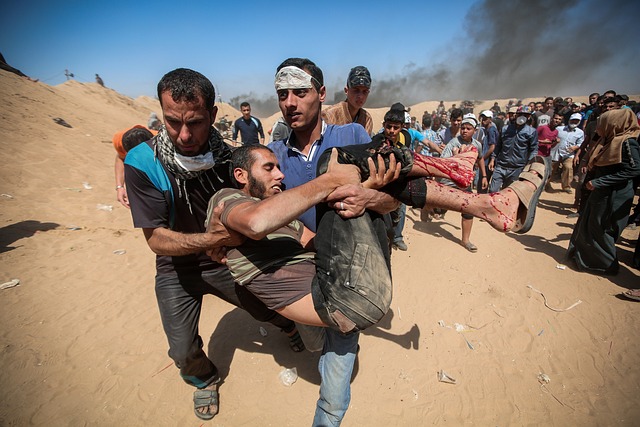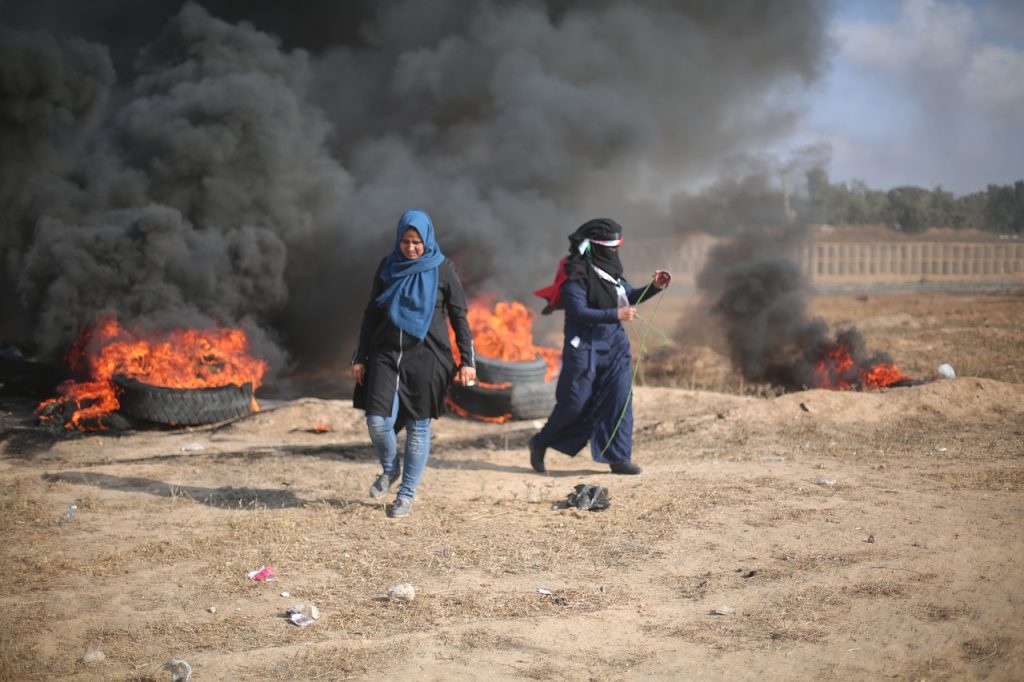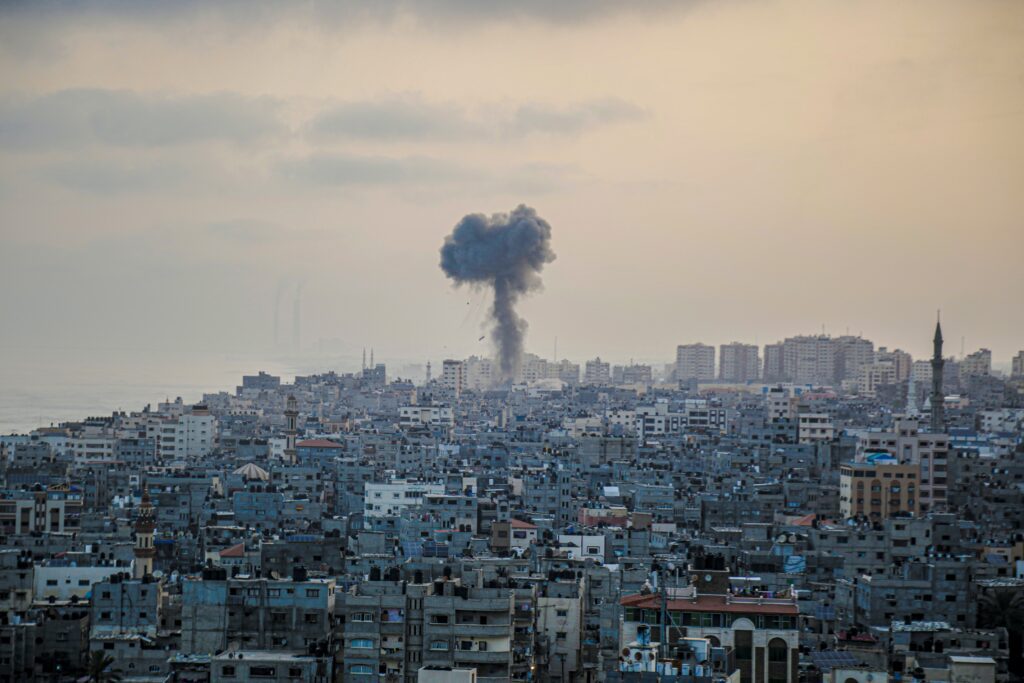Israeli airstrikes in Rafah
An Israeli airstrike on a homemade tent camp for Palestinians who had to leave their homes in Rafah, Gaza, on Sunday night killed at least 35 people, according to the Gaza Health Ministry. The Israeli military stated that they targeted a Hamas base with “precise munitions.” However, the military said it was looking into claims that the incident also hurt several civilians.
Table of Contents
The Incident: Israeli airstrikes
Date and Location
The attack took place in Rafah, a city in the southern part of the Gaza Strip, on Sunday night. Rafah has a lot of people, and the fighting between Israel and Hamas has had a significant effect on the area.
Casualties
According to the Health Ministry in Gaza, the bombing claimed the lives of at least 35 people. Witnesses said the scene was a mess, and rescue workers worked hard to pull people out of the rubble. As recovery efforts go on, the number of deaths may go up.
Target and Military Statement
The Israeli military claimed that a Hamas base was the target of the attack. Hamas is a militant group that controls Gaza in practice. In their statement, the military stressed the need to use “precise munitions” to limit damage to civilians. Even so, the strike killed a lot of civilians, which is why the military is looking into what happened.
Humanitarian Crisis
This assault is a sad reminder of how terrible things are for people in Gaza right now. Since 2007, Israel and Egypt have been blocking the coastal enclave, making it very tough for people and things to move inside and out. Due to the closure, living conditions have worsened, resulting in shortages of essentials such as meals, medicine, and fuel.
Context: The Israeli-Palestinian Conflict
Historical Background
There have been problems between Israel and the Palestinians since the early 1900s. Violence has broken out many times over the years, each time leaving a path of destruction and widening the gap between the two sides. The most recent flare-up followed a pattern of attacks and counterattacks in response to attacks, making an already dangerous situation even worse.
Previous Airstrikes and Controversies
This is not the first time that Israeli bombings in Gaza have resulted in numerous civilian deaths. Past events have sparked international anger and calls for responsibility. Israel asserts that its naval operations aim to thwart Hamas and other terrorist organizations. However, the large number of civilian deaths has prompted robust complaints.
International Response
The world community has called for an end to the conflict between Israel and the Palestinians many times. Resolutions from the UN and other peace efforts have tried to bring about lasting peace, but they haven’t been very successful. Some relief is still coming from humanitarian aid, but the need is much greater than the accessible resources.
The Role of Hamas : Israeli airstrikes
Israelis, Americans, and the European Union all see Hamas as a terrorist organization, but the institution has a lot of strength in Gaza. Hamas frequently launches rocket attacks from its military side, triggering retaliatory strikes. Because of this cycle of violence, it’s been hard for peace efforts to take off.


Challenges to Peace
A lasting peace deal still needs to come. Some of the most critical issues are security, borders, recognition of each other, and Jerusalem’s status. Pressures inside and outside the country have made talks harder for both parties.
conclusion: Israeli airstrikes
The airstrike in Rafah on Sunday night is another sad part of the long-running war between Israel and the Palestinians. Despite the Israeli army’s claim that its operations aim to target Hamas, the civilian deaths remain a source of concern and demand accountability. The large humanitarian disaster in Gaza is still a pressing and unresolved reminder, even though both sides are dealing with the immediate aftermath.
The whole world is paying close attention, hoping for a break in the cycle that has caused so much pain and suffering for both Israelis and Palestinians. Getting instant humanitarian aid and long-term solutions has never been more critical for those affected by this latest tragedy.


Amjad Mustafa, the owner and author of Keen2Know, is a highly qualified individual with strong experience in technical engineering. He is an experienced professional with a variety of business, technology, and car knowledge. His academic background prepared him for a diverse career and established him as a prominent figure at the intersection of these rapidly evolving industries.



